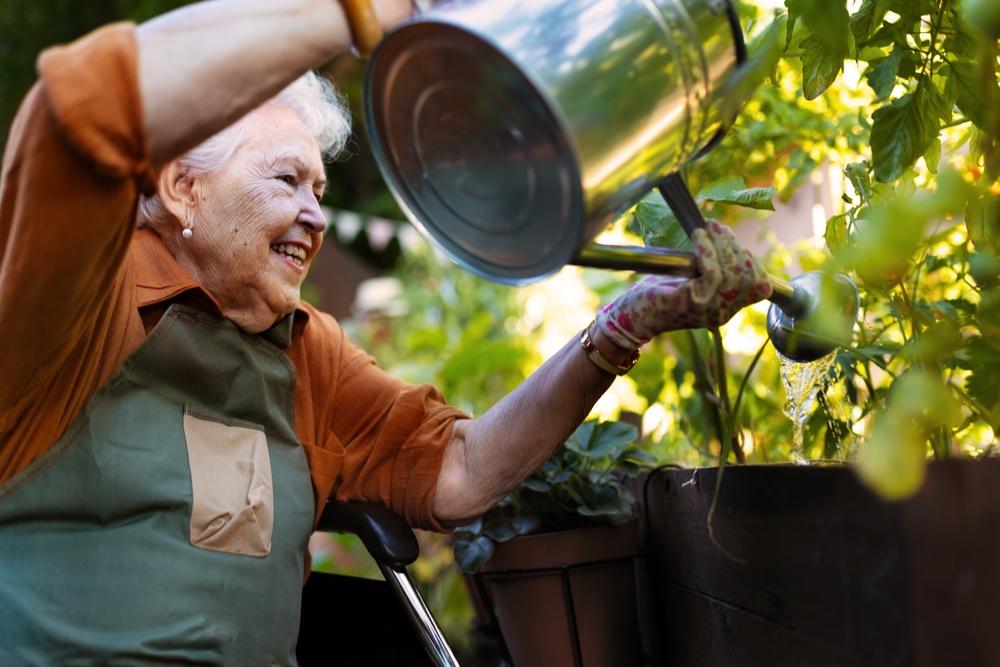 October 11, 2024
October 11, 2024
Every year on October 12th, we honor those who face the challenges of arthritis every day. It is a time to bring awareness to the condition and encourage others to be compassionate about their friends and family who might be diagnosed with arthritis.
We can support our loved ones by helping them find fun ways of managing arthritis. One significant way is finding workarounds for their favorite hobbies they might currently feel they can’t participate in.
The Importance of Hobbies
No matter our age, we always look for ways to enjoy life. Just because we’ve gotten older or our abilities have changed doesn’t mean we should forget about those things that spark joy.
As we age, those activities we do for fun can help us. Hobbies allow our brains to be used in ways that aren’t normally activated during typical everyday activities. These activities also typically move your body in ways you don’t do much on average.
So, as your loved one ages and the aches and pains of arthritis get more challenging, encouraging them to find new ways to participate in their hobbies could help. Even though moving joints can be painful, the more often your loved one flexes those parts of their body, the easier it will be on their overall pain levels.
Simple Adjustments to Make Activities More Fun
Now that we understand just how essential hobbies can be for individuals facing physical challenges, such as arthritis, how do we ensure they can participate in them? The answer might be more simple than you think.
Many people are looking for accommodations to do activities such as knitting, playing cards, reading, gardening, or cooking. The good news is your loved one isn’t alone. Better yet, they might even be able to find a local group with similar issues to offer support and have activity get-togethers – more on that later.
Here are some simple modifications your loved one can make to ensure they’ll still enjoy their favorite activities.
Gardening
Making accommodations for arthritis when gardening is as easy as creating raised gardening beds and using tools with long handles and soft grips to avoid having to bend low to the ground. You can also encourage your loved one to work with low-maintenance plants to make adjustments if they are having a flare-up day where tending to their garden isn’t possible.
Cooking
Some tools that might be helpful when cooking with arthritis are those that either do the work for them or have soft handles to help a senior’s grip. If cooking is too strenuous on their body, finding alternatives such as cooking together, compiling a cookbook for family and friends, or participating in community meals that are more about socialization and bonding over food than making the meals themselves might be helpful.
Yoga
With the right approach, yoga offers a gentle, low-impact exercise that helps individuals tune into their bodies while keeping joints and muscles warm and flexible. If your loved one already loves yoga, this activity doesn’t require much adjusting for arthritis. And if your loved one is looking for lower-impact activities to replace others, such as walking or hiking, then yoga can be a solution.

Knitting & Crocheting
If your loved one crochets, consider ergonomic crochet hooks with bigger handles, which will help them better position their hands. For knitting, a few alternatives are square knitting needles or a knitting loom, which are gentler on their hands and allow them to complete projects with less of a challenge. Crocheting and knitting can also be made more manageable with the use of a yarn holder to keep projects organized and contained.
Card Games
When your hands are riddled with arthritis pain, holding something as small and thin as playing cards can be tricky; luckily, your loved one can switch to using jumbo cards. Or if their card game doesn’t allow that option, they can put cards into a card holder for ease of use.
Arts & Crafts
Brushes with bigger handles or spring-loaded scissors can make intricate movements for arts and crafts fun again. However, these aren’t the only modifications that can be found in crafting circles. Seniors with arthritis can also utilize padded tweezers, large rubber stamp pressure tools, and spray paint trigger handles to make actions that require precise dexterity easier.
Reading
When it comes to reading books, two different options are available to your loved one. The first is a tool that allows those with arthritis to hold their books with less strain on their joints. It is called a page holder and can be found on Etsy or Amazon. Or, if your loved one can’t even bear the weight of holding a book, they can switch to listening to audiobooks.
Writing
Finally, if your loved one loves to spend time each day writing or journaling, there are solutions to help them avoid more aches and pains. The obvious choice is having them use technology to their advantage through typing instead of writing by hand or using voice-to-text. However, if they are still able to and enjoy writing by hand, getting them grips for their pencil can go a long way toward enjoying their hobby without an increase in discomfort.
Encouragement and Participation Go A Long Way
While knowing how to adjust to your loved one’s hobbies is integral to sparking joy in their day, it’s not the only way you can help. Most importantly, your senior will look to you for assistance with motivation and getting started with these new modifications.
Encouraging them to try new things or to adjust their mindset regarding their beloved hobbies is as easy as doing the activity with them or gifting them the necessary tools. Showing that you are excited about them finding an outlet for joy can make a difference in how your senior will react to the change.
If you can’t spare the extra time to encourage your loved one to keep up with their hobbies, an excellent alternative is local hobby groups. These groups are helpful for motivating your senior regarding a hobby and can also provide emotional support. Often, when dealing with this chronic condition, feeling connected to others is the key to managing arthritis in a more positive light.
If you need tips on approaching these changes in your loved one’s life or want assistance with their daily care, contact Accessible Home Health Care.



